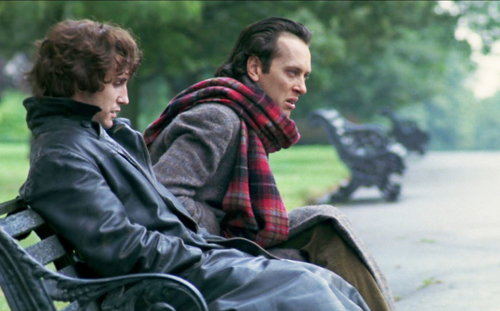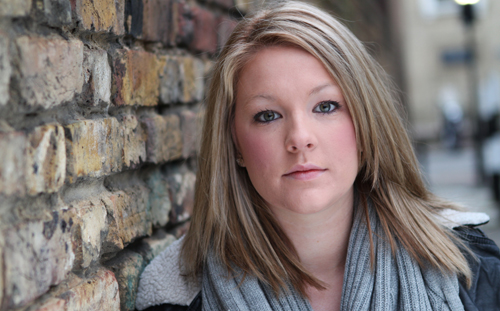
The third year has barely kicked off and drama school cafés and rehearsal rooms are consumed with talk of who has ‘interest’. Not tittle tattle about the latest flings and Friday night snogs, oh no – those conversations are long since gone.
There is a different sort of hearsay sweeping through the school corridors. It has the air of desperation and fear. “Have you heard? Jermaine has interest from Independent.”
The blood in many a student runs cold. No matter how thrilled they are for their peers with ‘interest’, there’s no getting away from it. Time is running out.
Agents are waving magic wands and turning drama students, one by one, into actors. Or so it seems.
As the graduation clock ticks, showcase after play, agents are waving magic wands and turning drama students, one by one, into actors. Or so it seems. Nevertheless, the pressure is real.
Sebastian Harcombe understands only too well the burden drama students have in their third year. The Director of BA Acting at the Royal Academy of Dramatic Art sees it year after year. Not only are students focused intently on consolidating their three years of training, they are acutely aware flying the nest and security of drama school is profoundly imminent, and the thought of not signing with an agent – chilling. When hopefully a call does come, it is not surprising how an agent’s hand can be ripped off at the arm within hours.
Stories of arts cuts, the fact that there are more graduate actors now than ever before – would we be surprised if, at the first sign of interest, ‘Jermaine’ signed with a tin pot agency specialising in look-a-likes? Lord, retrieve ‘Jermaine’ off the corridor floor if Independent, one of the largest agencies in the industry, truly did pick up the phone then. But wait – does big always mean better?
“Most people would assume so, but that’s not always the case,” explains Harcombe. “Often they have a big client base, sometimes it can feel very impersonal, because you haven’t got such a strong relationship with your agent.”
We’ve all heard the horror stories of actors becoming ‘lost’ in the high-flying commercial agencies. Some of those agents perhaps focus on the word ‘business’ more than ‘show’. But surely if an actor is steadfast in building a good relationship with their agent, is it not also true that the big players open some remarkable doors? “Of course they can get you seen often for things that other agents can’t,” says Harcombe, “because they’ve got all kinds of clients working for them, they make connections. In terms of film and television, that’s certainly true.”
For many actors, a more personal relationship is better suited, opting for one of the many boutique agencies that keep their books modest, explains Harcombe. “I think the advantage of that is you’re going to get a more personal involvement from your agent, because they have less clients, they perhaps choose them over a longer period and are very individual.”
What actors need to be reminded of, is essentially they are employing the agent, not that that should ever be emphasised or spoken about.
But what if you want to have more control over your career, not content with letting the grass grow under your feet and determined to work hard at it? What options are open then? “The Co-op,” says Harcombe, and he doesn’t mean the local supermarket chain.
He is referring to an agency that is run by the actors it represents. Essentially each client on the books does a set amount of hours in the office, going through casting breakdowns and suggesting their peers, and of course themselves. “They are useful to some actors on another level as you get all of the information that your agent normally sees,” he explains. “You get to see what’s being cast, what kind of things are coming up. But at the same time, the bigger agents have a better chance of getting their clients seen for the jobs.”
It is clear there are advantages and disadvantages for every type of agency. What is right for one budding actor can be entirely alien to another. Harcombe is clear in his advice. “It very much depends on a meeting, asking them to talk about their agency and how you think as an actor you would fit in,” he says. “What actors need to be reminded of, is essentially they are employing the agent, not that that should ever be emphasised or spoken about.”
Harcombe also believes that most agents would say it is “very important” their clients are active and keeping in touch. It is all about maintaining and encouraging “a creative and professional dialogue, because that’s all the agent can work with. A passionate engagement is very attractive.”
Harcombe contemplates a final piece of valuable advice. “A career is for a lifetime,” he explains. “The three years you get at drama school, you never get to repeat. It’s never quite the same again. You have all kinds of wonderful learning experiences in the work that you do as an actor.
“But there’s something about the current climate of agents that are very hungry for new people coming out,” he continues, emphasising a greater pressure on the graduating actor. “My advice to my students is to try as much as possible to hang on as long as you can in drama school because you learn so much in that final year. It’s where people really try to put all of the training that they’ve had into action.”
Harcombe is far from naïve and appreciates “it’s very hard for actors, especially young actors, to resist a big agent”. It is at this point the RADA Director sends out an appeal. “If an actor signs in that third year, it is a fantastic opportunity for the agent to bring lots of industry people to see them at work in drama school. There’s a lot to be gained from that.”
-PM.



Be the first to comment